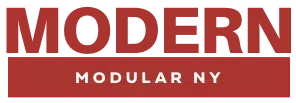Understanding Modular Home Financing in the USA
Modular homes offer a modern and customizable housing solution that has gained popularity in the USA. Understanding modular home financing is essential for those looking to invest in this innovative housing option. Modular home financing involves obtaining a loan to finance the construction or purchase of a modular home. Unlike traditional stick-built homes, modular homes are prefabricated off-site in sections and assembled on the property. This unique construction method can impact the financing options available to buyers.
What is Modular Home Financing?
Modular home financing refers to the process of securing a loan to purchase or build a modular home. Lenders offer various loan options tailored to the specific needs of modular home buyers, taking into account factors such as the property’s value, the borrower’s financial situation, and the type of modular home being purchased. Understanding the nuances of modular home financing can help buyers navigate the process with confidence and make informed decisions about their home purchase.

Benefits of Financing a Modular Home
Financing a modular home offers several advantages for homebuyers. One of the key benefits is the ability to customize the design and layout of the home to suit individual preferences. Modular homes are also typically more energy-efficient and cost-effective than traditional homes, leading to potential savings on utility bills and maintenance costs over time. Additionally, modular homes are constructed in a controlled factory setting, resulting in faster build times and reduced construction delays compared to site-built homes.
| Loan Type | Down Payment Requirement | Credit Score Minimum | Eligibility Criteria |
|---|---|---|---|
| Conventional | Varies | 620+ | Good credit history, stable income |
| FHA | 3.5% | 580+ | Lower credit scores, limited down payment funds |
| VA | None | 620+ | Eligible veterans, active-duty service members |
| USDA | None | 640+ | Low to moderate-income borrowers in rural areas |
Best Loan Types for Modular Home Financing
When it comes to financing a modular home, several loan options are available to buyers. Understanding the differences between these loan types can help borrowers choose the best option for their needs and financial situation.
| Loan Type | Term | Interest Rate | APR | Discount Points | Example Loan Amount | Example Monthly Payment |
|---|---|---|---|---|---|---|
| Purchase | 30-year Fixed | 7.625% | 7.676% | 0.000 | $300,000 | $2,123.38 |
| 15-year Fixed | 7.375% | 7.456% | 0.000 | $300,000 | $2,759.77 | |
| Refinance | 30-year Fixed | 8.000% | 8.053% | 0.000 | $300,000 | $2,201.39 |
| 15-year Fixed | 7.500% | 7.581% | 0.000 | $300,000 | $2,781.04 | |
| Cash-out Refinance | 20-year Fixed | 8.000% | 8.077% | 0.000 | $260,000 | $2,174.74 |
| 15-year Fixed | 7.500% | 7.756% | 1.000 | $260,000 | $2,410.23 |
Conventional Loans for Modular Homes
Conventional loans are a popular choice for financing modular homes. These loans are not insured or guaranteed by the federal government and typically require a higher credit score and down payment compared to government-backed loans. Conventional loans offer flexibility in terms of loan amounts and repayment terms, making them suitable for borrowers with strong credit histories and stable incomes.
FHA Loans for Modular Homes
FHA loans are insured by the Federal Housing Administration and are designed to help borrowers with limited down payment funds and lower credit scores qualify for home loans. FHA loans have less stringent requirements compared to conventional loans, making them an attractive option for first-time homebuyers or those with less-than-perfect credit.
VA Loans for Modular Homes
VA loans are available to eligible veterans, active-duty service members, and their spouses to finance the purchase of a home, including modular homes. VA loans offer competitive interest rates, no down payment requirements, and limited closing costs, making them a valuable financing option for those who have served in the military.
USDA Loans for Modular Homes
USDA loans are backed by the U.S. Department of Agriculture and are designed to assist low to moderate-income borrowers in rural areas in purchasing a home, including modular homes. USDA loans offer 100% financing, low-interest rates, and flexible credit requirements, making them an attractive option for eligible buyers looking to finance a modular home in designated rural areas.
| Loan Type | Term | Interest Rate | APR | Monthly Payment Example | Other Fees |
|---|---|---|---|---|---|
| Construction Loan | 12-month Interest Only | 7.000% | 8.295% | $1,127.85 – $1,205.63 (Interest Only) | 1.00% Loan Origination Fee |
| Loan Amount: $200,000 | |||||
| Modular Home Loan | 15-year Maturity (30-year Amortization) | 6.850% | 7.083% | $1,323.88 for 179 months, Final Payment $149,091.22 (Balloon Payment) | No Loan Origination Fee if paid at closing of construction loan |
| Loan Amount: $200,000 | |||||
For more detailed information, please refer to the First Community Bank Modular Home Loans page.
How to Qualify for Modular Home Financing
Qualifying for modular home financing requires meeting certain criteria set by lenders to assess the borrower’s creditworthiness and ability to repay the loan. Understanding the qualification requirements can help potential buyers prepare their finances and improve their chances of securing financing for a modular home.
Credit Score Requirements for Modular Home Financing
Credit scores play a crucial role in the approval process for modular home financing. Lenders use credit scores to evaluate the borrower’s credit history and assess their risk level. While specific credit score requirements may vary depending on the type of loan and lender, a higher credit score generally increases the likelihood of approval and can result in lower interest rates.
Income Requirements for Modular Home Financing
Lenders also consider the borrower’s income when evaluating their eligibility for modular home financing. Income requirements ensure that borrowers have a stable source of income to support their loan repayment. Lenders may require proof of income in the form of pay stubs, tax returns, and other financial documents to verify the borrower’s ability to afford the loan.
Debt-to-Income Ratio for Modular Home Financing
The debt-to-income ratio is another important factor that lenders assess when determining a borrower’s eligibility for modular home financing. This ratio compares the borrower’s monthly debt payments to their gross monthly income and helps lenders evaluate the borrower’s ability to manage additional debt.
Maintaining a low debt-to-income ratio can increase the chances of loan approval and may result in more favorable loan terms. In conclusion, modular home financing offers a flexible and accessible way for homebuyers to achieve their homeownership dreams.
By understanding the various loan options available and meeting the qualification requirements, buyers can navigate the financing process confidently and secure the funding needed to purchase or build their modular home.







